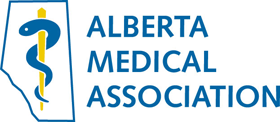About the joint committee report on Physician-Assisted Dying
March 1, 2016

Dear Member:
The Report of the Special Joint Committee on Physician-Assisted Dying was tabled last week, including a Dissenting Report and a Supplementary Opinion. I have some general remarks in response, and will then comment on some of the report’s specific recommendations.
The report
The committee is to be recognized for taking on a very challenging matter. They reviewed extensive presentations and submissions. In terms of their findings, I agree that every effort should be made to avoid a patchwork of laws, regulations and standards of practice across the country. Instead we should aim for as much uniformity as possible, providing equally for the care of all Canadians. I also support periodic reviews of PAD, appropriate universal mental health care, and pan-Canadian palliative care, including accessible culturally and spiritually appropriate end-of-life care.
In general, the committee expressed support for the capacity of the health professionals with whom they consulted to manage the challenging decisions that PAD presents. However, some of the recommendations in the report are more liberal than advised by those groups.
There are three areas that are particularly fraught with challenges. They are: (i) the use of advanced requests/directives; (ii) whether mental illness should be included or excluded as an eligibility criterion; and (iii) whether under-age persons should be eligible for PAD. The committee has suggested that, because the Carter case did not involve these considerations, the federal government is at liberty to legislate broadly beyond the parameters of the Supreme Court of Canada (SCC) decision. In other words, because the SCC decision did not specifically exclude these things, the committee decided that they might be included. Whether this is a reasonable decision or not underlies the variance between the report of the committee and the Dissenting Report.
Advanced directives
I know that a doctor may not overrule instructions in an advanced directive any more than she or he may overrule a patient’s current instructions. If, though, a patient were able to anticipate all the various clinical circumstances that might occur between making an advanced directive and the loss of competence, that advance directive might look quite different.
While I appreciate the concerns about patients requesting early death in the face of a diagnosis that will ultimately result in loss of decision-making competence, we should humbly acknowledge our inability to predict the outcome of evolving chronic illnesses, particularly the quality of life associated with them.
There is another issue with advanced directives; they commonly include a proxy component. As a society, we need to consider whether we are prepared to allow proxy decisions that result in PAD for individuals not competent to make their own decisions. This raises real questions about protection of the vulnerable.
Inclusion of mental health
The recommendation to allow psychological suffering as an eligibility criterion raises questions of competence, remediation, and discrimination. Because it is difficult to determine the independent effect of mental illness on cognitive function, assessing competence is particularly difficult in mental illness. While the committee expressed confidence in health care professionals to ensure that eligibility criteria are satisfied, representatives of the professional societies presenting to the committee had reservations. There were concerns about the definition of “irremediable” in this area, recognizing that the lack of imminent death provides opportunities for treatment and remediation. With respect to these issues, however, the committee concluded that the difficulty in applying PAD to mental illness does not outweigh the potential for discrimination against affected individuals if they are not afforded the right to PAD.
For my part, I do not see this as an issue of the presence or absence of “discrimination,” but rather a matter for risk and benefit analysis appropriately applied to a clinical situation.
In Quebec, the patient must have a terminal illness to be eligible for PAD, thus removing the issue of mental illness from consideration. Federal legislation that includes mental illness would create the “patchwork” of approaches that the committee wished to avoid.
Age
As for age, this is a divisive criterion. It is easy to claim that competency generally is not age-related, but how much do we know about assessing competence in children to make a decision where the outcome is death? There is a natural tendency to feel a greater sense of loss when a younger person dies. This is an area that could be subjected to individualized risk/benefit analysis. The inclusion of certain criteria, for example, the existence of a terminal illness, would be a relevant consideration.
Referral and respecting conscience
Finally, I am disappointed in the committee’s recommendation that “effective referral” should be required from physicians who object to PAD. I understand the debate about what effective referral means. Yet knowing what its likely outcome will be, physicians who object to participation in PAD view referral as complicity in the process.
“Effective referral” is unnecessary if we approach transfer of care of a patient requesting PAD largely as an issue of information management. Existing legislation requires a physician to provide a patient’s health record to the patient – and hence to any other agency or health provider the patient chooses. A system to handle transfer of care based on health information management would provide timely access to PAD without formal referral.
There are three additional reasons to respect conscience rights. First, doing so achieves the balance between the Charter protections for both patients and providers. It is consistent with the SCC decision that “nothing in the declaration of invalidity…would compel physicians to provide assistance in dying” and that “the Charter rights of patients and physicians will need to be reconciled.” Overruling the conscience of physicians provides no benefit to individual patients or the public, and harms individual physicians and the medical profession.
Secondly, it is not good patient care to require objecting physicians to participate. The practice of PAD, as with any kind of medical practice, should be restricted to those with relevant training and demonstrated competence. Surely at this most pivotal time of life, patients deserve to be looked after by providers who believe in and support the patient’s decision.
The third reason is that it is not necessary to conscript all physicians to participate. Sufficient numbers of physicians will be available voluntarily to provide effective access to PAD.
The Government of Alberta has launched consultations on this subject. The Alberta Medical Association is hosting an information session on aspects of PAD relevant to physicians on March 12 from 12:30 – 2:30 p.m. For those of you unable to attend in person, we are planning for the session to be available online as a webcast. The details of how to access the webcast on the day of the meeting (or the archived version thereafter) will be emailed to all members next week.
Please continue to listen to the most important people in this matter: our patients. Let me know what you think. Email president@albertadoctors.org or leave a comment below.
Kind regards,
Carl W. Nohr, MDCM, PhD, FRCSC, FACS
President

No comments
Commenting on this page is closed.